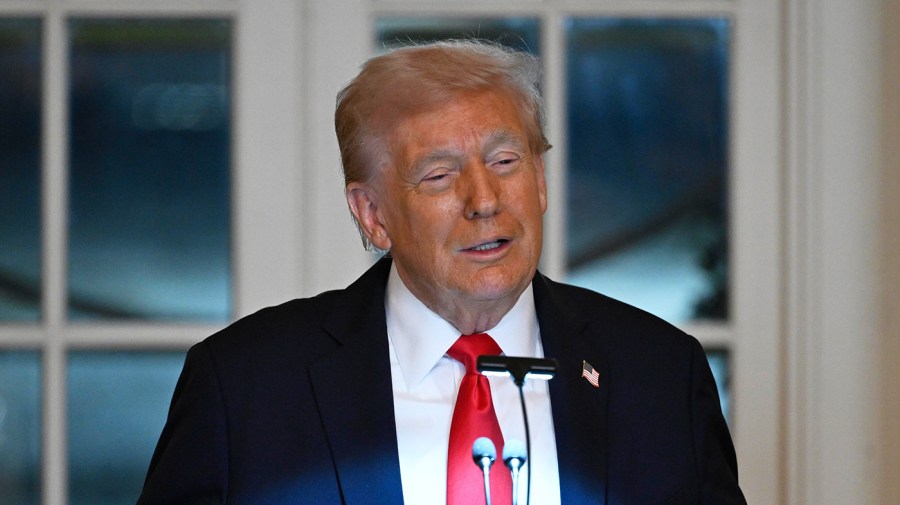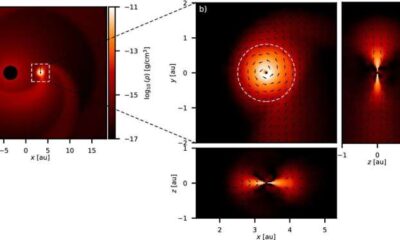Business
Trump Seeks to Strengthen U.S. Rare Earth Supply Amid Trade Tensions

The U.S. government is intensifying efforts to secure access to rare earth elements, vital for various technologies, as tensions escalate in the ongoing trade conflict with China. This announcement comes as President Donald Trump and his administration aim to mitigate the risks associated with dependency on Chinese supplies for these critical minerals.
Rare earth elements are indispensable in the production of high-tech products, including smartphones, electric vehicles, and military equipment. The Department of Defense has identified these materials as essential to national security and economic stability. As the U.S.-China trade war continues, the administration is taking proactive steps to bolster domestic production and reduce reliance on foreign sources.
In a statement released on March 12, 2022, officials highlighted plans to implement a strategy that would support mining and processing of rare earths within the United States. This initiative is part of a broader effort to ensure that American technology sectors are not adversely affected by potential supply chain disruptions. The strategy seeks to enhance the competitiveness of U.S. industries in the global market.
Government Actions and Legislative Support
The Trump administration’s decision aligns with the priorities outlined in the National Defense Authorization Act, which emphasizes the importance of securing a stable supply chain for rare earth elements. The Act allocates funding aimed at developing domestic resources and fostering partnerships with allied countries.
Recent reports indicate that China currently dominates the rare earth market, controlling approximately 80% of global production. This significant share raises concerns over the vulnerability of U.S. industries that rely heavily on these materials. By enhancing local production capabilities, the U.S. hopes to regain a competitive edge and ensure the availability of these minerals for future technological advancements.
The administration’s approach may also involve collaboration with private companies to expedite the exploration and extraction of rare earth elements. Such partnerships could lead to innovative methods of sourcing these materials while minimizing environmental impacts.
Impact on Technology and Industry
The implications of this strategy extend beyond national security. The U.S. technology sector stands to benefit significantly from a more robust domestic supply of rare earths. Companies involved in renewable energy, electric vehicle manufacturing, and consumer electronics are particularly reliant on these materials. Ensuring a stable supply chain could foster growth and innovation within these industries.
Experts underscore that the U.S. must act swiftly to develop its resources, as the global demand for rare earth elements is anticipated to increase. The shift towards green technologies, including wind turbines and electric batteries, will further amplify the need for these critical minerals.
As the U.S. administration races to catch up with China’s dominance in the rare earth sector, the focus remains on creating a sustainable and secure supply chain. By prioritizing domestic production and fostering international partnerships, the U.S. aims to navigate the complexities of the trade conflict while securing its technological future.
The challenges ahead are significant, but the administration’s proactive measures could reshape the landscape of rare earth production and usage in the years to come. With the global balance of power in the rare earth market at stake, the U.S. is determined to take decisive action to safeguard its interests and ensure a competitive position in the global economy.
-

 Science1 month ago
Science1 month agoOhio State Study Uncovers Brain Connectivity and Function Links
-

 Politics2 months ago
Politics2 months agoHamas Chief Stresses Disarmament Tied to Occupation’s End
-

 Science1 month ago
Science1 month agoUniversity of Hawaiʻi Joins $25.6M AI Project for Disaster Monitoring
-

 Entertainment1 month ago
Entertainment1 month agoMegan Thee Stallion Exposes Alleged Online Attack by Bots
-

 Science4 weeks ago
Science4 weeks agoALMA Discovers Companion Orbiting Giant Star π 1 Gruis
-

 Science2 months ago
Science2 months agoResearchers Challenge 200-Year-Old Physics Principle with Atomic Engines
-

 Entertainment1 month ago
Entertainment1 month agoPaloma Elsesser Shines at LA Event with Iconic Slicked-Back Bun
-

 World1 month ago
World1 month agoFDA Unveils Plan to Cut Drug Prices and Boost Biosimilars
-

 Business1 month ago
Business1 month agoMotley Fool Wealth Management Reduces Medtronic Holdings by 14.7%
-

 Top Stories2 months ago
Top Stories2 months agoFederal Agents Detain Driver in Addison; Protests Erupt Immediately
-

 Entertainment1 month ago
Entertainment1 month agoBeloved Artist and Community Leader Gloria Rosencrants Passes Away
-

 Science2 months ago
Science2 months agoInnovator Captures Light at 2 Billion Frames Per Second







